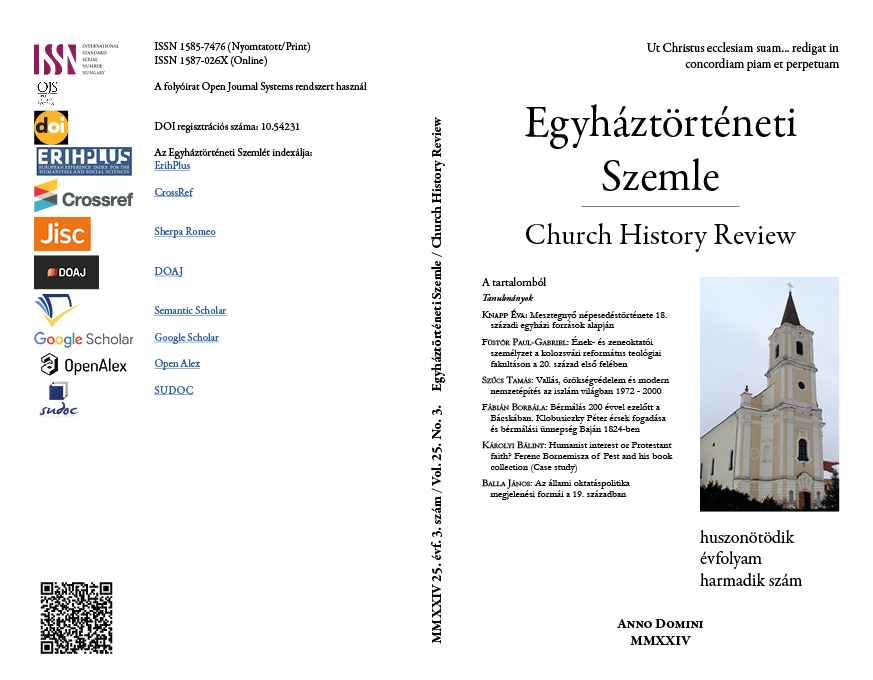Religion, heritage protection and modern nation-building in the Islamic world 1972–2000
DOI:
https://doi.org/10.54231/ETSZEMLE.2024.3.3Keywords:
Islam, heritage protection, world heritageAbstract
The link between Islam and global heritage protection has been a global concern since the Taliban blew up the Bamiyan Buddhas in March 2001. In this article, we seek to answer how the relationship between global heritage protection and Islam made its way to Bamiyan, and what dynamics determined the relationship between Islamic religion and culture and the global protection of cultural heritage. Through quantitative and qualitative analysis, we can conclude that within the Islamic world, the attitude towards heritage protection and the World Heritage system was far from uniform. In the second half of the last century, there is a distinct negative correlation between Islam as a political force for identity, and conformity to global heritage protection standards. Countries that performed well in the World Heritage system were those with a stable secular system. And these countries have clearly created their own world heritage representation based on Western, Orientalist narratives, in which they have not granted a place to Islamic religion and culture.
Downloads
Downloads
Published
Conference Proceedings Volume
Section
Categories
License
Copyright (c) 2024 Szűcs Tamás (Szerző)

This work is licensed under a Creative Commons Attribution 4.0 International License.
The author(s) reserve the copyright of their work.
The Church History Review does not restrict the rights of authors to place their manuscripts or manuscript versions on preprint servers or other hosting. This applies generally to the following formats.
- Submitted version
- Accepted version (manuscript accepted by the author)
- Published version (Version of Record)









